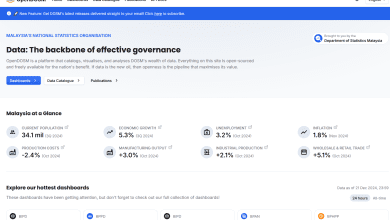Would you allow your underage daughter to get married?
By Mariam Mokhtar


The shariah court rulings go against the civil courts. Why has Malaysia not banned child marriages? Under Section 376 of the Penal Code, sex with a minor is considered as statutory rape and is a criminal offence. Under civil law, sexual intercourse with a girl under the age of 16 is a crime, whether or not she consents to it.
Under shariah law, a 16-year-old Muslim girl can marry, with the consent of the religious court. Every case is considered on a case-by-case basis and exemptions are allowed for younger girls, who are below 16 years old. If she has the permission of the state’s chief minister or Menteri Besar, she can also apply to get married. Why should normal, responsible parents allow the state to make decisions about their child?
In 2010, two 10-year-old girls were married off to men who were over 40 years old. There was a public outcry not because of the marriages, but because one girl had been found abandoned in a village mosque. The child’s father had been offered money and was persuaded that the husband-to-be was of good character.
Child marriage is sexual abuse and legalised paedophilia. It is a violation of the human rights of the child. The exploited girl undergoes tremendous emotional and physical trauma. She stops going to school and denies herself an education. She has no access to skills and without knowledge, she is unable to secure good and stable jobs, to provide for her family and contribute to the growth of the country. Her personal freedom and growth are curtailed.
As she is confined to the house because she has to look after her children and care for her husband, she is excluded from interacting with her friends, or participating in social activities in her community.
Her husband may prevent her from refusing sex, and she could risk being infected with a sexually transmitted disease or HIV/AIDS. Her body is still developing and when pregnant, her health is at further risk from premature pregnancy or pregnancy related mortality.
Around the world, women are allowed to enjoy the right to higher education, an improved living standard, and the benefits of economic and financial freedom. Back in Malaysia, Muslim women are stuck in the middle ages, with their lives dictated not by one set of laws, but by two. To make them conform, the religious authorities may issue fatwas which further confine women’s activities.
It is unacceptable for an underage girl to marry with the permission of religious officials. Why should her life and future be ruined by strangers?
We all agree that children need education, not marriage, for a good start in life. Will the government develop and implement systems to discourage child marriages?
Will there be programmes to make us change our attitudes to out-dated customs and old-fashioned practices? Who will make the first bold move, to review the shariah and civil laws, so that there is an emphasis on human rights, the rights of the child and the rights of women?
In one session in parliament, last October, there were proposals by an Opposition politician to review the law which would ban child marriages, including re-examining the shariah law which would allow 9-year-old Muslim girls to get married. That proposal was opposed by a government parliamentarian who claimed that the ban on child marriages would make some people the victims of “unforeseen circumstances”.
Is marriage the answer to the problem of these individuals, some of whom may be below the legal age of marriage? Is marriage a means to stop illegitimate children being born? When will sex education be taught in our schools? Sex education does not equate to having free sex. It is teaching children how to respect their bodies, to respect one another, and how to say “no”.
Why are we hypocrites? Why do we call ourselves modern, but in our daily lives still practise medieval methods and act like we are in need of an education?


